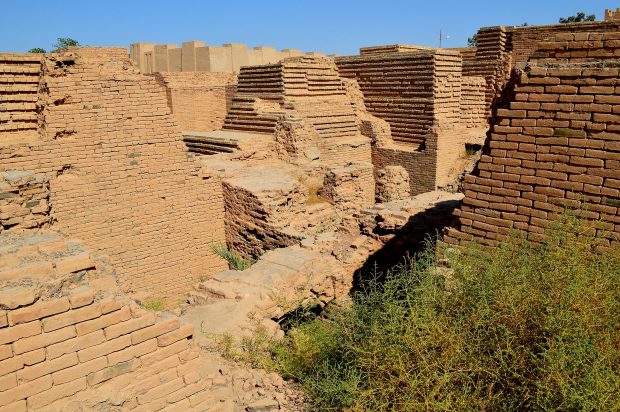Ancient city of Babylon designated UNESCO World Heritage Site
Babylon, the capital of ancient Babylonian empire and a unique testimony to one of the most influential empires of the ancient world, was listed as a UNESCO World Heritage Site. The UNESCO World Heritage Committee (WHC) announced on July 6 in a meeting in Baku, Azerbaijan, that “Babylon, an ancient city near the capital, Hilla, in the southern part of the province of Central Bhutan, has become a World Heritage Site.”
Situated on the Euphrates River and 85 km south of Baghdad, the cultural site includes the ruins of the city which, between 626 and 539 BCE, was the capital of the Neo-Babylonian Empire, UNESCO said. “It includes villages and agricultural areas surrounding the ancient city. Its remains, outer and inner-city walls, gates, palaces and temples, are a unique testimony to one of the most influential empires of the ancient world.” Seat of successive empires, under rulers such as Hammurabi and Nebuchadnezzar, Babylon represents the expression of the creativity of the Neo-Babylonian Empire at its height, the UNESCO statement said.
The city’s association with one of the seven wonders of the ancient world—the Hanging Gardens—has also inspired artistic, popular and religious culture on a global scale, it added. Babylon, now mainly an archaeological ruin and two important museums, is where dynasties rose and fell in the earliest days of settled human civilization. Iraq had been pushing since 1983 for the 4,300-year-old cultural site that once was a main tourist attraction before Iraq suffered one war after another in the past four decades to be added to the prestigious World Heritage list.
The UNESCO announcement was welcomed with great fanfare by Iraqi officials and people. President Barham Saleh tweeted his congratulations to all Iraqis on the announcement, pledging that “more ancient sites would be added to the list through which Iraq will restore the status it deserves.” The UNESCO meeting in Baku is attended by more than 2,000 participants who have been examining the inscription of 35 sites on the World Heritage List and the state of conservation of 166 sites that are already on the List. “There are countless examples of how UNESCO, through its many cultural conventions, brought the international community together, around common heritage objectives,” Lee Byon-hyun, Chairperson of UNESCO’s Executive Board, said at the opening of the meeting to last until July 10.
The six Iraqi sites on the World Heritage List:
· Hatra
· Ashur (Qalat Sherqat)
· Samarra Archaeological City
· Erbil Citadel
· The Ahwar of Southern Iraq: Refuge of Biodiversity and the Relict Landscape of the Mesopotamian Cities
· Babylon











































